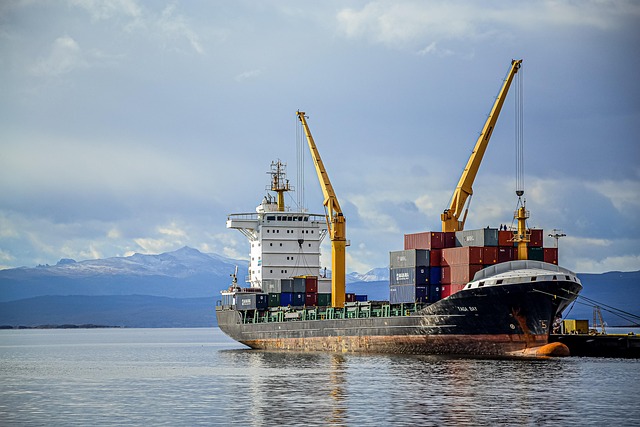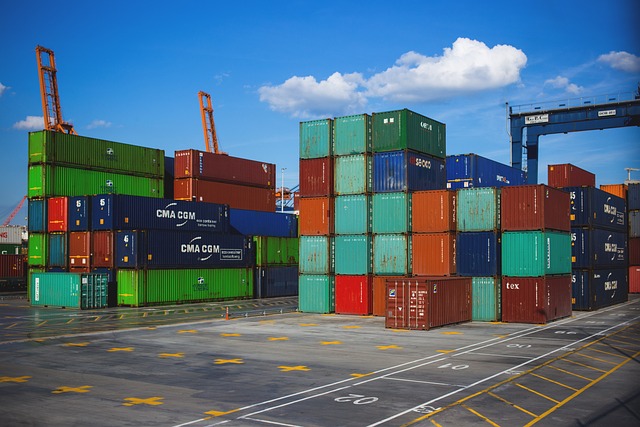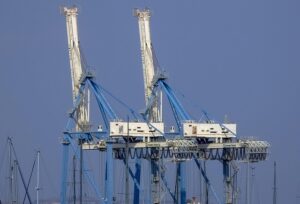Insulated containers revolutionize food preservation and distribution with advanced cooling technologies, extending produce shelf life, reducing waste, and offering cost-effective storage solutions. Available in various sizes, configurations (standard, custom), and acquisition options (new, used, leased), they support sustainable practices while enhancing freshness and quality for farmers, retailers, and distributors.
Insulated containers are transforming how we preserve fresh produce, offering rapid cooling capabilities that extend shelf life and reduce waste. This innovative technology leverages specialized materials to maintain optimal temperatures, ensuring vegetables and fruits stay crisp and vibrant longer. In an era driven by sustainability and efficiency, insulated containers present a game-changing solution for agriculture and food industries alike, contributing to both environmental conservation and consumer satisfaction.
- Insulated Containers: The Cool Solution for Produce Preservation
- Rapid Cooling Technology: Enhancing Freshness in Agriculture
- Efficient Storage: Maximizing Shelf Life with Insulated Solutions
- Sustainable Practices: Eco-Friendly Cooling for Food Industries
Insulated Containers: The Cool Solution for Produce Preservation

Insulated containers are revolutionizing the way we preserve fresh produce, offering an efficient and rapid cooling solution that extends shelf life and reduces waste. These specialized vessels are designed to maintain optimal temperatures, ensuring perishable goods stay fresh for longer periods. By utilizing advanced insulation materials and carefully controlled environments, they provide a cost-effective alternative to traditional cold storage facilities.
Whether you’re a farmer looking to transport your harvest or a retailer aiming to reduce food waste, insulated containers offer a versatile solution. Available in various sizes and configurations, from standard shipping containers to custom-built modular units, they cater to diverse needs. You can choose from new, used, or leased options, ensuring accessibility and affordability. Many manufacturers also provide modifications and conversions, allowing you to tailor the containers to specific requirements, such as adding refrigeration systems or creating on-site cold storage solutions.
Rapid Cooling Technology: Enhancing Freshness in Agriculture

Rapid Cooling Technology has revolutionized the agricultural sector by significantly enhancing the freshness and quality of perishable produce. Insulated containers play a pivotal role in this process, offering efficient and rapid cooling capabilities that extend the shelf life of fruits and vegetables. These advanced containers are designed with cutting-edge insulation materials and systems that maintain optimal temperatures, ensuring that fresh produce arrives at markets and consumers’ homes in prime condition.
By utilizing insulated containers, farmers and distributors can now implement dynamic cold chain management strategies. This technology not only reduces waste and the environmental impact of frequent product replacement but also minimizes financial losses associated with spoilage. Whether it’s for transportation, storage, or on-site cooling, new and used insulated containers are versatile solutions that cater to various needs in today’s demanding agricultural market. From buy insulated containers to insulated container leasing, dealers and suppliers offer a range of options, including custom modifications, ensuring producers have the resources they need to stay ahead in a competitive industry.
Efficient Storage: Maximizing Shelf Life with Insulated Solutions

Insulated containers offer a highly efficient storage solution for fresh produce, significantly extending their shelf life. By maintaining optimal temperature and humidity levels, these containers prevent spoilage and ensure the quality of perishable goods remains top-notch. This is particularly beneficial for retailers, farmers, and distributors who need to transport and store products over extended periods without compromising freshness.
When it comes to choosing the right insulated container, there’s an array of options available, from new and used containers to custom designs and various dimensions. Buyers can select from insulated shipping or storage containers, refrigerated models, or even modular and office containers that incorporate insulation for enhanced cold storage capabilities. Whether you’re looking to buy insulated containers, rent them for temporary use, or explore deals on the second-hand market, a wide range of suppliers and dealers offer solutions tailored to different budgets and specific requirements, ensuring efficient storage practices with minimal waste.
Sustainable Practices: Eco-Friendly Cooling for Food Industries

In today’s food industry, where sustainability is a growing priority, eco-friendly cooling practices are gaining traction. Insulated containers offer an innovative solution to traditional refrigeration methods, providing efficient and sustainable cold storage for perishable goods. By utilizing these advanced containers, food producers can significantly reduce their environmental impact while maintaining the freshness of produce.
The adoption of insulated containers promotes a greener approach to food preservation. These containers are designed with energy-efficient insulation, minimizing energy consumption compared to conventional cooling systems. Moreover, their versatility allows for various applications, including cold storage, shipping, and even as temporary on-site offices or workshops. With options available in new, used, or custom-made formats, businesses can choose the most suitable and cost-effective solution for their needs. The insulated container market is expanding, catering to a wide range of industries seeking sustainable practices without compromising quality or efficiency.
Insulated containers equipped with rapid cooling technology represent a game-changer in fresh produce preservation. By efficiently maintaining optimal temperatures, these innovative solutions extend shelf life, reduce waste, and promote sustainable food practices. Adopting insulated containers is not only beneficial for farmers and retailers but also contributes to a greener future for the food industry.
